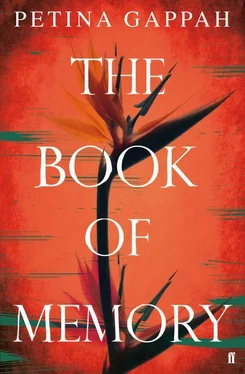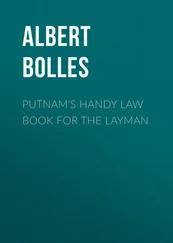It was a strange time to be living in a white family. Independence had come five years before. The news was filled with reburials of mangled corpses whose names would never be known, the Tomb of the Unknown Soldier at the new shrine at the Heroes Acre, and roll calls of the names of the fallen in Mozambique. A government minister had suggested a ritual ceremony to propitiate the spirits of the dead, lest they return as vengeful ngozi spirits. A tomb was erected to the Unknown Soldier. Kingsway became Julius Nyerere Avenue. North Avenue became Josiah Tongogara Avenue, and Railway Avenue became Kenneth Kaunda.
The ‘Year of the People’s Struggle’ was followed by the ‘Year of Consolidating the People’s Struggle’, the ‘Year of Transformation’, the ‘Year of the People’s Socialism’ and the ‘Year of the Child’.
It was a time of building a new nation, but there was conflict and upheaval. There were weekly explosions of landmines that had been planted in the forests during the war then forgotten about. The Mozambican rebels were waging war on the eastern borders. Our soldiers were sent to protect the Beira Corridor that gave the country access to sea routes. The apartheid government in South Africa was bombing targets all over Southern Africa. There were rumours of massacres in the south.
But at Summer Madness, I had long wet weekends in the library or sunny days in the tree house. On our trips out of Harare, I watched the countryside sweep by in a rush of green. The wars and troubles were, at the closest distance, only reports on the news bulletins, and at the furthest, distant murmurs, far-off rumours that did not penetrate the ordered tranquillity of my new life.
The war closest to me was the one that had passed, and it came to me through Ian’s stories as he talked about the hot extractions he had been part of, and the Afs he had shot. He terrified me by telling me that he had shot a boy my size, who had been a spy for the terrorists. ‘He was as small as you are,’ he said as he winked at me. ‘Just two tickeys and a brick high.’
When I saw him again after my return home, it was hard to see the old Ian in this broken man in his wheelchair, his mouth permanently gaping, all liver spots and dribble. The once-upon-a-time hater of Afs and zots and kafs was clinging to the woman who cared for him, a woman from Chipinge who cleaned him and fed him and sang him Shona songs. He barely noticed when Alexandra left the room, but wept openly when his carer left.
My life found its total absorption in Umwinsidale. I made only one friend at school, a girl called Mercy, who came to the Convent in form two. She was a scholarship girl with milk-bottle spectacles. Her greatest value to me was that she did not ask questions that I did not want to answer. It also helped to have a friend because it meant that people did not think me stranger than I already was.
I did not want anyone to know that my parents had sold me: that was between Lloyd and me, and any time I got close to any of the girls I liked, I backed away, fearing the inevitable questions that further intimacy would have obliged me to answer.
I enjoyed my lessons and the library, but for the most part, school to me was a sort of temporary exile from Summer Madness. Umwinsidale had Liz Warrender and Sandy Knight-Bruce. They were Lloyd’s friends, but I soon came to see them as part of my life. Liz must have been in her fifties then, a weathered woman with leathery skin who wore jodhpurs every day I saw her, except on the day of Poppy’s funeral.
She smelled of a combination of gin, Charlie perfume and manure, with a dash of wet dog thrown in. She was the source of almost everything I knew about Lloyd’s family: Lloyd had inherited her from Poppy. ‘If the dog does not bite you’, the sign on Liz’s gate said, ‘the owner will shoot you. If you survive you will be prosecuted.’ Her cocker spaniel, Russet, was a mass of nerves and allergies. There was no dog more terrified of anything that moved.
Liz needed more protection from her maid, Rebecca, than from outside trespassers. Liz no longer knew how many times she had sacked Rebecca, but each time, Rebecca refused to go. Even when she did not pay her, Rebecca still stayed, helping herself to anything Liz left lying around. When Liz confronted her about the thefts, Rebecca insisted that the things were hers.
‘That’s my bag,’ said Liz.
‘No, medem,’ Rebecca said. ‘It is mine.’
‘I know perfectly well what is mine, Rebecca.’
‘You are mistaken, medem,’ Rebecca said.
From Rebecca’s mouth, the word medem fell with a particular contempt that was more pointed than if Rebecca had called Liz by her first name.
Liz often snuck into Rebecca’s quarters to steal back her things, and Rebecca would take them again. This is how things were with them; Rebecca would steal something, and Liz would take it back.
Liz’s house was often filled with Rebecca’s relatives. They walked along Umwinsidale Drive in little knots, with little bundles on their heads. It was not unusual for Liz to walk into her kitchen and find Rebecca laughing with two women she had never seen as they drank her tea. ‘This is my sister, medem. This is my aunt. They are staying a few days only, just a few days.’
The few days would turn into months, and Liz would retreat in fear, feeling like an interloper in her own home.
She could easily have sold her house to move into a smaller place, but she could not bear to leave her horse, Copperplate. She could not afford to keep him, so she housed him at the Compton-Jones’s stud farm on Hazlemere Lane. In exchange for Copperplate’s keep, she trained and exercised their horses. No one understood horses like Liz; she had remedies for colic that were better than any vet’s.
She had been a jockey once, one of Rhodesia’s only female jockeys, she said, but that lot couldn’t put up with her. She was paid far less than she was worth; like her servants, the Compton-Joneses thought they were doing her a favour.
Whenever Liz came over, Lloyd would say, ‘Quick, hide the gin. Here comes Liz, on the cadge again.’ But the gin bottle would come out all the same.
In Mharapara Street, MaiWhizi peered through the curtains and polished her veranda. Liz was more direct; she simply went from house to house, picking up as much as she left behind. I soon discovered that she came to know as much as she did because she and Lloyd were the only whites in Umwinsidale who spoke fluent Shona. Liz picked up her gossip from the maids and gardeners.
She liked to tell the story of how she had gone one night to the compound that had sprouted behind her house, and was offered a drink of masese , a traditional beer drunk from a shared container, by Rebecca’s son. Never one to turn down a free drink, she had taken up the proffered calabash, drunk deeply and passed it on to the next drinker. From that night had come the nickname her domestics gave her, Mukanya, not only for her monkey-like face, but also as a sign that she was one of them, and accordingly deserved a totem name.
The other neighbour that I saw often was Sandy Knight-Bruce, who lived in a cottage on Hazlemere Lane. He could have been any age from thirty-five to sixty. Like the waiter in the Shaw play we did for O level, he seemed to be a man whom age could not wither, because he had never bloomed. He played three musical instruments, and had wanted to be a concert violinist, but he thought his face too ugly. ‘No one wants to see a violin below this , my dear,’ he used to say. I had seen uglier faces in Mufakose, faces disfigured by scars, and thought he was not as hideous as all that.
Sandy’s great vanity was that he was descended from Edward Plantagenet. He had spent most of his life working on a family tree that proved one of his ancestors was born on the wrong side of the Plantagenet sheets. As further confirmation of his royal lineage, he had a huge portrait of his presumed ancestral monarch in his living room, and always made sure to sit in a chair beneath it, the better to draw the eye of the viewer to the resemblance. But as the resemblance was really confined to the hairstyle, I often reflected that I, too, would have resembled Edward Plantagenet if I had worn my hair as he did.
Читать дальше












